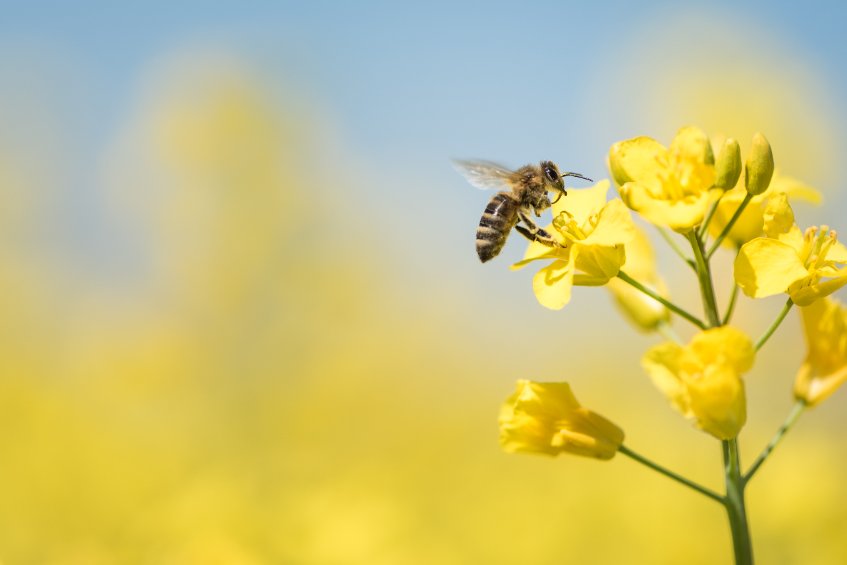Pollination key for fruitful oilseed rape crop, study says

When oilseed rape experiences a lack of pollination it allocates more resources to plant growth and flowering – producing less robust plants – new research which could help growers has found.
OSR plants compensate for pollination deficits by producing 32% more flowers and flowering an average of nine days longer than well-pollinated plants.
This results in taller, less structurally dense plants that are more susceptible to external factors such as excessive wind.
In addition, they produce fewer pods and fewer seeds per pod, according to the study by University of Edinburgh PhD student Stace Fairhurst, in conjunction with SRUC.
Oilseed rape is an important crop with multiple uses, such as vegetable oil for human consumption and biodiesel.
However, like all floral crops, it relies on insect pollination to increase seed production.
The study found pollen deficits resulted in a reduced fruit set of 60% compared to 78% in pollinated plants.
And it found they produced 21% fewer seeds per pod than insect-pollinated plants and 14% fewer seeds than wind-pollinated plants.
The research, published in Basic and Applied Ecology, could help growers identify a deficiency in pollination.
It could also encourage them to take remedial action by introducing managed honeybees or planting floral-rich field margins to attract wild pollinators.
Supervisor Dr Lorna Cole said: “Stace’s work highlights how oilseed rape changes how it allocates energy between growth and reproduction.
"Importantly for growers, oilseed that is suffering from insufficient pollination will display traits that growers could use as an early warning of pollination deficits - such as prolonged flowering, or tall leggy plants.”
Stace added: “By detecting these deficits and managing pollination as an agricultural input, growers can exploit the valuable ecosystem service offered by insect pollinators to increase economic output well into the future.”








